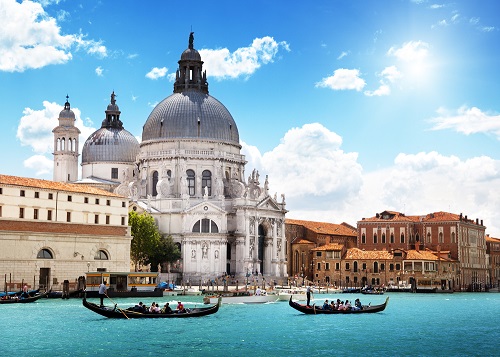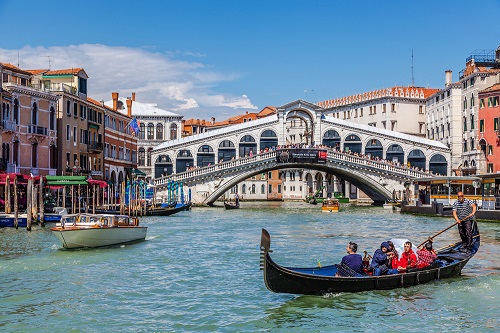Italy is one of the most popular destinations in the world, for visitors and expats seeking residence and employment. An estimated 50 million people visit the country annually. Whether or not you need a visa will depend on your country of origin. Read on to learn more about your options.
Will I need a visa?
You will not need a visa to enter Italy if you are from a European Union (EU) or European Economic Area (EEA) member state.
If you hold a British passport, you will not need a visa to enter Italy. If you’re planning a stay of longer than three months, you will need to register as an Italian resident.
If you are from the USA, you are allowed to travel to Italy, as well as any other country that is a member of the Schengen Area, for up to 90 days for tourist or business purposes without a visa. However, your US passport must be valid for at least three months beyond your departure date, and preferably for six months – it is worth checking the exact requirements before you make any travel arrangements. All non-residents are required to complete a declaration of presence (dichiarazione di presenza).
If you are from Australia, you will be allowed to remain in Italy for up to 90 days, but you will need a passport that is valid for six months beyond your departure date.
You will need to apply for a Schengen zone visa (a short term entry visa applicable to the countries in the Schengen zone) if you fall into one of the following categories:
• You are the national of a third-world country that has signed a visa liberalisation agreement with the Schengen states, but you were previously rejected from entering Italy or any other Schengen country
• You are a member of a state that has not reached a visa liberalisation agreement with the Schengen countries

How do I apply for an entry visa?
In order to apply for a Schengen visa you will need:
• A completed application form
• Two passport-format photos
• Your passport and copies of any previous visas
• Travel insurance (including medical coverage) with confirmation of a minimum of €30,000 coverage within the entire Schengen area
• A cover letter stating the purpose of your visit and itinerary
• Proof of civil status (for example, your marriage certificate or the birth certificates of your children)
• Your flight itinerary
• The address of your accommodation, including hotels
• Proof that you are able to support yourself financially throughout your stay (for example, a recent statement from your bank for the last three months, which shows funds of at least €50 per day, or
traveller’s cheques, or proof of sponsorship)
You may need further documentation depending on your status. If you are employed, you may need to supply:
• A contract of employment
• A letter of leave from your employer
• A bank statement for the last six months
• An income tax return
• Your business license (if you are self-employed)
If you are a student, you will need to include your certificate of enrolment at the relevant educational institution.
If you are retired, you will need a statement of your pension for the last six months.
How much does it cost?
The standard cost of a visa is €80, but you will be exempt if you are one of the following:
• A child younger than six years of age
• A family member of an EU/EEA national
Documents required for exemption are:
• Original marriage certificate or civil partnership certificate
• Original full birth certificate
• EU/EEA national’s passport
You will also be exempt if you are travelling for the purpose of study or educational training, for example, if you are a school pupil, an undergraduate student or a postgraduate student. You must be accompanied by your teachers/professors. In addition, invited researchers are exempt.
Documents required for exemption are:
• Invitation letter from your institution
• Letter from the university/organisation in the UK
There is a reduced fee of €35 for nationals of countries that have a visa facilitation agreement with the EU.
Fees are non-refundable and are not a guarantee that you will be issued with a visa. It is therefore essential to make sure that you supply all the required documentation when you apply for your visa, and that this documentation is in good order.
How long does it take?
It can take up to two weeks for a short term visa for Italy to be processed. Make sure you leave plenty of time for your application to be processed.
What will I need to apply for a work visa?
The ease of obtaining a work visa depends on your country of origin. You will be eligible to work if you are from an EU/EEA member state. EU/EEA nationals can enter the country and start working without a work permit, although they must get a declaration of presence (dichiarazione di presenza) from a local police office or Questura. If you are an EU citizen and you intend to stay for longer than three months, you must apply for a residence permit
However, if you are not an EU or an EEA citizen, you will need to already have a job in Italy, and have fulfilled the relevant criteria, before you can apply for a work visa.

A work visa for Italy is a form of long-term stay visa, known as a national or D-visa. This is an entrance visa, which means that it grants you permission to enter Italy, but you still need to obtain a residence permit (permesso di soggiorno) within eight days of arriving there.
An Italian work visa is usually valid for the duration of the work contract, up to a maximum of two years. It can be renewed for up to five years.
Italy operates a work permit quota, so you will need to check that it is possible for you to work. There are windows for non-EU nationals to apply.
EU blue card
If you have been issued a residence permit for work that requires advanced skills by an EU member country, you will be eligible for an EU blue card. This is an approved EU-wide work permit allowing highly skilled non-EU citizens to work and live in any country within the European Union (excluding Denmark, Ireland and the United Kingdom).
Bringing a pet into Italy
You can bring your pet into Italy, but it will need:
• A microchip
• Vaccinations and proof of vaccinations
• A rabies titer test
Depending on your country of origin, there may be additional requirements. Check with Italian immigration to find out, before you make travel arrangements.

